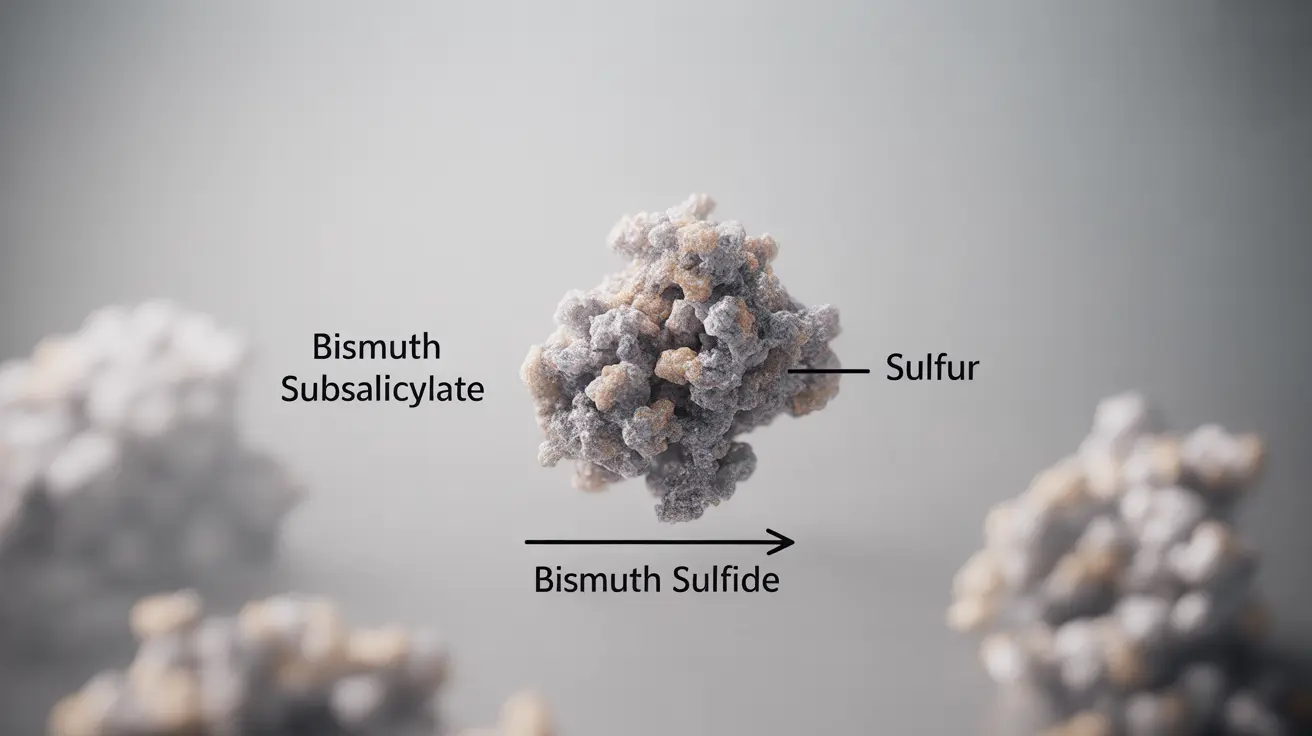If you've noticed black-colored stools after taking Pepto Bismol, you're not alone. This common over-the-counter medication can cause temporary changes in stool color that may be alarming if you're not expecting them. Understanding why this happens and when it might signal a problem is essential for your peace of mind and safety.
This article will explain the relationship between Pepto Bismol and black stools, help you distinguish between normal medication-related changes and potentially serious symptoms, and guide you on when to seek medical attention.
How Pepto Bismol Affects Stool Color
Pepto Bismol contains bismuth subsalicylate, which interacts with sulfur in your digestive system. This chemical reaction creates bismuth sulfide, a black-colored compound that causes your stool to appear dark or black. This is a normal and expected side effect of the medication.
The same reaction can also cause your tongue to temporarily turn black or dark gray. This discoloration is harmless and will resolve on its own once you stop taking the medication.
Normal vs. Concerning Black Stools
Normal Characteristics of Pepto Bismol-Related Black Stools
When black stools are caused by Pepto Bismol, they typically have these characteristics:
- Dark black or very dark gray color
- Normal stool consistency
- No unusual odor
- Occurs while taking or shortly after taking the medication
- Resolves within a few days of stopping Pepto Bismol
Warning Signs That Require Medical Attention
Some characteristics may indicate a more serious condition:
- Tar-like consistency
- Strong, unusual odor
- Accompanied by pain or cramping
- Continues long after stopping Pepto Bismol
- Associated with weakness or dizziness
Duration of Black Stools
The black stool side effect typically begins within a day or two of starting Pepto Bismol. After discontinuing the medication, it may take 2-3 days for your stool color to return to normal. This timeline can vary depending on your digestive system and how much medication you've taken.
Safety and Monitoring
While the black stool side effect is generally harmless, it's important to monitor your symptoms and use Pepto Bismol as directed. Don't exceed the recommended dosage or duration of use without consulting your healthcare provider.
Frequently Asked Questions
Can Pepto Bismol cause black stool and is this normal?
Yes, Pepto Bismol can cause black stools, and this is a normal side effect. It occurs when bismuth subsalicylate in the medication reacts with sulfur in your digestive system to form bismuth sulfide, a black compound.
How long does the black stool side effect from Pepto Bismol last?
Black stools typically appear within 1-2 days of taking Pepto Bismol and should resolve within 2-3 days after stopping the medication. If black stools persist beyond this timeframe, consult your healthcare provider.
How can I tell if black stool after taking Pepto Bismol is serious or just a harmless side effect?
Pepto Bismol-related black stools are typically dark but normal in consistency. If your stools are tar-like, have a strong odor, or are accompanied by pain, dizziness, or weakness, these could be signs of a more serious condition requiring medical attention.
Why does Pepto Bismol turn my tongue and stool black?
The bismuth subsalicylate in Pepto Bismol reacts with sulfur in your saliva and digestive system to form bismuth sulfide, a black compound. This causes temporary darkening of both your tongue and stool.
When should I see a doctor if I have black stool while taking or after stopping Pepto Bismol?
Seek medical attention if black stools persist more than 3-4 days after stopping Pepto Bismol, if they're accompanied by pain, dizziness, or weakness, or if the stools have a tar-like consistency. These could indicate internal bleeding or other serious conditions.




